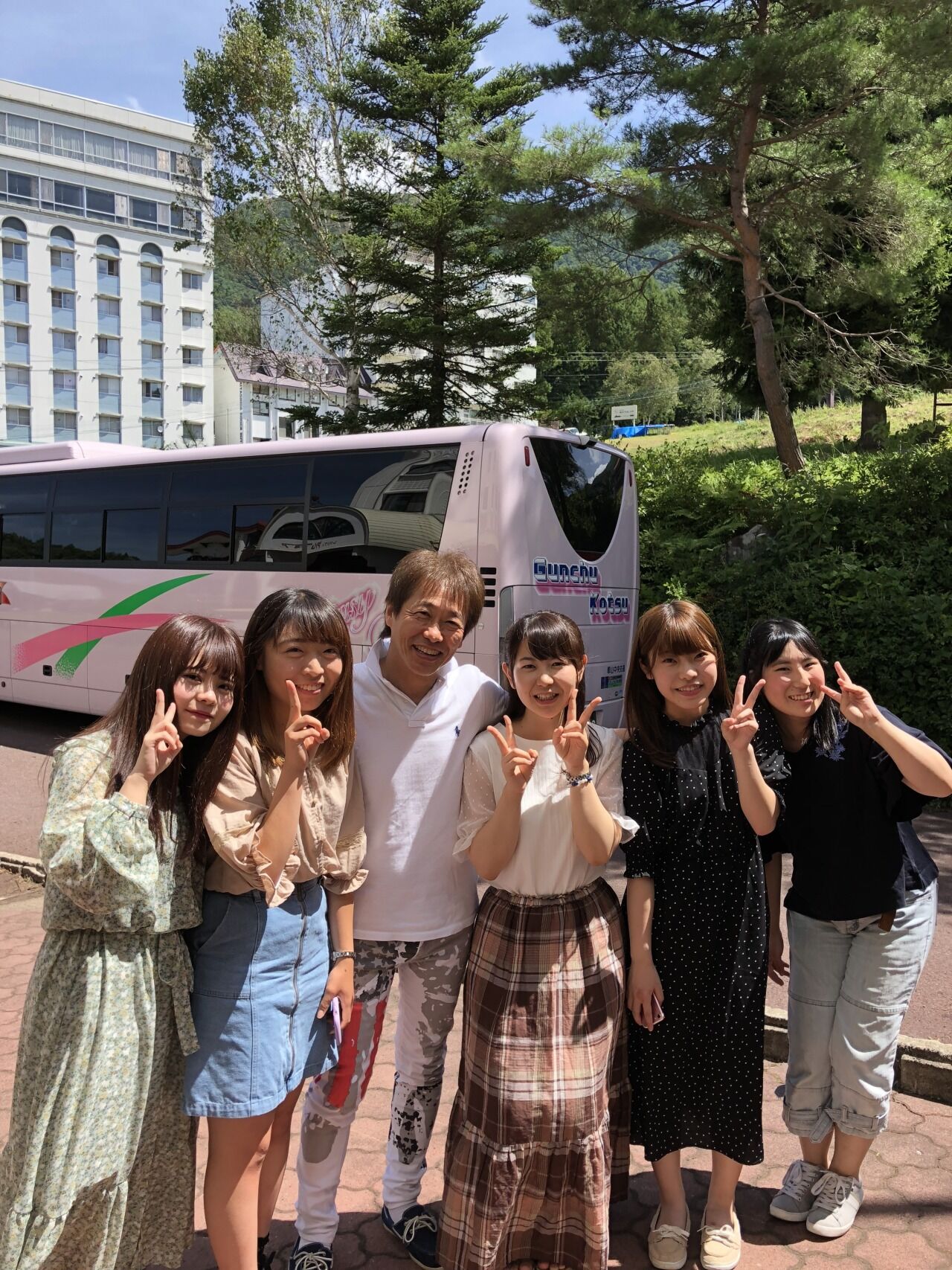Summer camp 2018 continued smoothly and without incident.
Summer camp 2018 continued smoothly and without incident.
This year's summer camp was held from Monday, August 20th to Thursday, August 23rd and was successfully completed over four days and three nights. Thanks to everyone's support, we were able to achieve a triple zero: zero injuries, zero incidents, and zero typhoons, a first in the history of the Tohoku Youth Orchestra's four summer camps, so it was a "success" from the perspective of Namiyoke Shrine in Tsukiji , where we had previously visited to pray for protection from evil spirits.
The content of the event was that on the third day of the camp, the band members suddenly sang a birthday song for the band's 40th birthday. According to Manabu Takeda, who is a lecturer at the Fukushima office of the Tohoku Youth Orchestra and the local Fukushima TV's FTV Junior Orchestra ,

This time, there was no need to call an ambulance (lol), and we had whole group practice, section practice, sightseeing and recreation, so it finally felt like a real training camp, even though it was the fourth time.
We received such an objective evaluation, so we believe that it was probably not the location of the camp - Okinawa or Hokkaido - but the content of the camp that was good.
In fact, on the morning of the final day of the camp, the group split into sections and practiced for two and a half hours under the guidance of two teachers from the Tokyo Philharmonic Orchestra.
Cellist Ryo Takebayashi not only gave me intensive training in the cello part, but also detailed instruction on ensemble playing. Here is the video of the opening part of the fourth movement of Brahms' Symphony No. 2.
At the end of the practice, Takebayashi tearfully recounted an episode in which he visited the coastal areas that were severely damaged by the tsunami and the areas of Fukushima Prefecture that were contaminated by radiation after the Great East Japan Earthquake, and gave volunteer performances there. This reminded the members that the orchestra was founded as a movement for reconstruction.
The reason is that I was at the wind and percussion section practice at the time, even though I posted "The teacher in charge saw it." Flute player Sakahashi Yanami was in high spirits from the morning, but he verbalized his expressions with delicate phrasing. He gave this performance of the fourth movement's finale, which he was advised to "play boldly, without worrying about making mistakes, because this is an amateur orchestra."
"That's one more thing," he said, and for the remaining 30 minutes he talked about his own experiences. He talked about the 25 countries he has visited, his experience in the largest slum in India, how he eats every grain of rice because only one-third of the world's population can eat a full meal, how Korea and Taiwan are advanced in education in Asia, how he wants everyone to go abroad and experience things for themselves, and how music has the power to open people's hearts.
Akama Kanayoshi, a second-year junior high school student who plays the horn and has been with us since the first season, took careful notes.

In response to a request from the orchestra members who said they wanted to hear the teacher play the flute, he performed a passage from Bizet's "Les Amours de Arles," as well as the opening part of Doppler's "Hungarian Pastoral Fantaisie," which he said was what inspired him to become a professional flute after hearing Jean-Pierre Rampal play it.

I was blessed with the opportunity to listen to this special solo concert with the other members of the orchestra, and I was so moved that I inadvertently burst into tears. Every time someone pointed out to me that my eyes were bloodshot, I would offer excuses like "conjunctivitis" or "it's because of the alcohol I drank yesterday."
After the practice, all I could say to Sakahashi-san was, trying to hide the tears in his eyes, "Thank you very much. Ultimately, music is soul." He immediately replied, "Music is where soul music begins. It's not about technique. There's no point in playing music without heart."
The words of someone with an abundance of skill carry a certain authenticity. When I asked the eldest of the three Tomizawa brothers, who plays the tuba (fireworks maker), about his impressions, he expressed his envy, saying, "Hmm, I'd like to be able to play an instrument like that."
Of course, the brass band members wanted to take commemorative photos.

They were happy to accommodate that request as well.
As I was there with the wind and percussion section, the reporting may be biased, but thank you so much to Takebayashi and Sakahashi for coming all the way out to Kita Shiga Kogen to teach!
On the afternoon of the last day of the training camp, "It's finally here!"

Speaking of lunch at training camps, curry is the staple. I wonder what gives me this sense of security.

The four-day summer training camp has come to an end.
The parents of Tomoyoshi Fujiwara, a violinist and first-year junior high school student from Iwate who joined the orchestra this year, gave him a local specialty sweet called "Kamome no Tamago" to help him get some sugar.

Former captain and Sendai player Akane Hatakeyama, who has also secured employment, poses with ease.
I feel that the Tohoku Youth Orchestra's 2018 summer training camp ended without a hitch, with the refrain ``smoothly, smoothly'' repeating like the theme of Brahms' symphony.
Seven years have passed since the disaster, and there are things we can do through music rather than words.
We appreciate your continued support for the Tohoku Youth Orchestra.